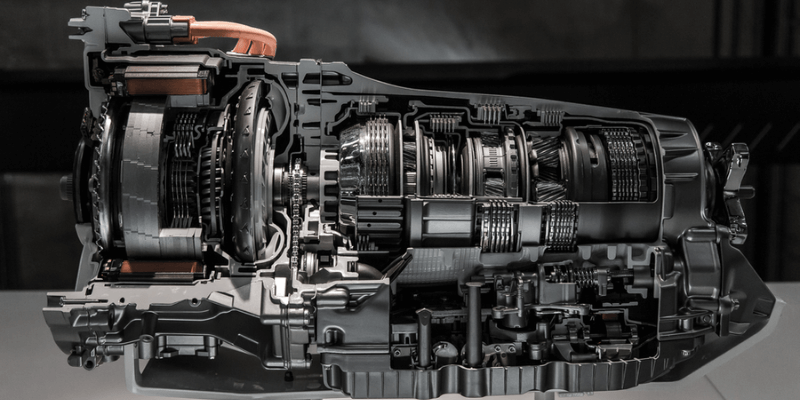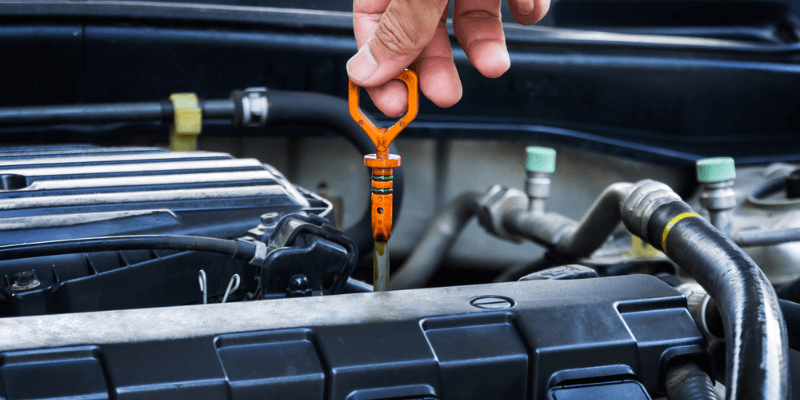 Swipe for more categories
Swipe for more categories 
Transmission
Warning: Undefined variable $post_id in /var/www/dsw/wp-content/themes/DriveSmart_2024_v1.1/the-complete-guide-to-vehicle-care/template.php on line 33
March 29, 2019
Warning: Undefined variable $post_id in /var/www/dsw/wp-content/themes/DriveSmart_2024_v1.1/the-complete-guide-to-vehicle-care/template.php on line 47
Transmission
Warning: Undefined variable $post_id in /var/www/dsw/wp-content/themes/DriveSmart_2024_v1.1/the-complete-guide-to-vehicle-care/template.php on line 48
March 29, 2019
Transmission

The transmission is the next integral component on a vehicle; this is due to its direct connection with the drivetrain as well as the vehicle’s engine. Without proper care and regular maintenance, the transmission’s integrity is put at risk. It is recommended that all scheduled maintenance be completed to ensure the life of the transmission.
Transmission Fluid
While the transmission may not have as many components requiring replacement or service as the vehicle’s engine, the few that it has are detrimental to the operation of the rest of the vehicle. It is important to keep on top of transmission inspections and care, as repairs are among the most expensive for a vehicle.
Checking the Dipstick

Checking the transmission fluid levels is important to ensure the proper care for the transmission system. This is done through the use of a dipstick on top of the engine. When checking a vehicle’s fluid levels, owners should always bring a napkin along for inspection. As the transmission dipstick is removed, it will be coated in a layer of transmission fluid. Take the napkin and run it along the dipstick to wipe off all of the transmission fluid. Make sure the transmission fluid on the napkin is pink and sweet-smelling; as this indicates a healthy transmission. If the transmission fluid is a brown or blackish color, the vehicle’s transmission fluid requires changing as soon as possible. As transmission fluid does not burn up during operation, the presence of low or no transmission indicates there is a leak on the vehicle.
Replacing the Transmission Fluid
Similar to how engine oil lubricates the internal components of the vehicle’s engine, transmission fluid is used to lubricate the internals of the transmission. The composition of the vehicle’s drivetrain will determine the required transmission fluid. For automatic transmissions, users will be required to use automatic transmission fluid. Manual transmissions will require a mixture of oils including motor oil, hypoid gear oil, and occasionally automatic transmission oil.
Individuals with automatic transmission vehicles are typically recommended to replace the transmission fluid once every 60,000 to 100,000 miles. Some mechanics may advise that transmission fluid on a vehicle is never in need of changing, as the complexity of transmission systems have become more compact and air-tight. Regardless, changing a vehicle’s transmission fluid often will cause no harm to the vehicle’s transmission system.
For those with manual transmissions, the average replacement recommendation is every 30,000 to 60,000 miles. For vehicles under heavy-duty use, such as constant towing, loading, or dumping, manufacturers typically recommend replacements every 15,000 miles.
Transmission Filter
Despite the transmission filter is an integral part of ensuring the life of a vehicle’s transmission, replacements are typically not detrimental to the overall operation of the vehicle. The largest deterrent from regular replacements comes with the complexity of removing the transmission filter, as it is placed far inside the transmission itself. Filter replacements are typically a labor-intensive job commonly associated with a high repair bill. Consult with a mechanic to determine if a transmission filter replacement is needed.
Power Steering Fluid
Due to varying answers from professionals, power steering fluid is often neglected as a recommended fluid that needs to be replaced. While some professionals have stated replacements should be done every two years, others recommend having the power steering fluid flushed every 75,000 to 100,000 miles.
"> /var/www/dsw/wp-content/themes/DriveSmart_2024_v1.1/the-complete-guide-to-vehicle-care/template.php on line 149
">
"> /var/www/dsw/wp-content/themes/DriveSmart_2024_v1.1/includes/quote-modal.php on line 8
">




